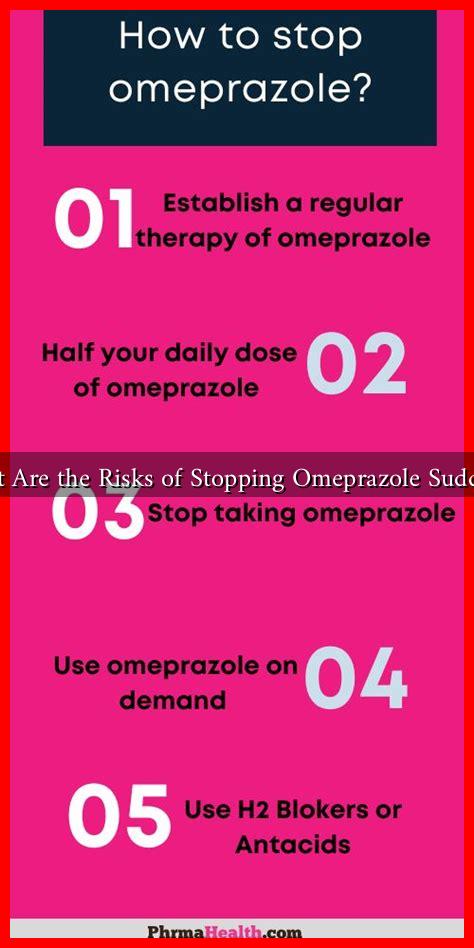-
Table of Contents
What Are the Risks of Stopping Omeprazole Suddenly?
Omeprazole is a widely prescribed medication belonging to a class of drugs known as proton pump inhibitors (PPIs). It is primarily used to treat conditions such as gastroesophageal reflux disease (GERD), peptic ulcers, and Zollinger-Ellison syndrome by reducing stomach acid production. While it can be effective in managing these conditions, many patients may consider stopping the medication abruptly. This article explores the potential risks associated with suddenly discontinuing omeprazole.
Understanding Omeprazole and Its Role
Omeprazole works by blocking the proton pumps in the stomach lining, which are responsible for producing gastric acid. By inhibiting this process, the drug helps alleviate symptoms associated with excessive stomach acid, such as heartburn and indigestion. However, long-term use of PPIs like omeprazole can lead to several physiological changes in the body.
Risks of Abruptly Stopping Omeprazole
While it may be tempting to stop taking omeprazole once symptoms improve, doing so suddenly can lead to several risks and complications:
- Rebound Acid Hypersecretion: One of the most significant risks of stopping omeprazole suddenly is rebound acid hypersecretion. This phenomenon occurs when the stomach produces an excessive amount of acid after the medication is discontinued, leading to a resurgence of symptoms such as heartburn and acid reflux.
- Worsening of Symptoms: Patients who stop taking omeprazole abruptly may experience a rapid return of their original symptoms, often more severe than before. This can lead to discomfort and a decreased quality of life.
- Increased Risk of Gastric Issues: Discontinuing omeprazole suddenly can increase the risk of developing gastric issues, such as gastritis or ulcers, due to the sudden increase in stomach acid.
- Psychological Effects: The sudden return of symptoms can lead to anxiety and stress, particularly for individuals who have been managing chronic conditions for an extended period.
Case Studies and Statistics
Research has shown that many patients experience rebound symptoms after stopping PPIs. A study published in the American Journal of Gastroenterology found that nearly 50% of patients experienced rebound acid hypersecretion after discontinuing PPIs. Furthermore, a survey conducted by the Journal of Clinical Gastroenterology indicated that 70% of patients reported worsening symptoms after stopping their PPI therapy without a tapering plan.
Best Practices for Discontinuing Omeprazole
If you are considering stopping omeprazole, it is crucial to do so under the guidance of a healthcare professional. Here are some best practices to follow:
- Consult Your Doctor: Always discuss your plans with your healthcare provider. They can help you determine the best course of action based on your specific condition.
- Tapering Off: Gradually reducing the dosage of omeprazole can help minimize the risk of rebound symptoms. Your doctor may recommend a tapering schedule.
- Alternative Treatments: Explore alternative treatments or lifestyle changes that can help manage your symptoms without the need for PPIs.
- Monitor Symptoms: Keep a close eye on your symptoms during the discontinuation process and report any significant changes to your healthcare provider.
Conclusion
While omeprazole can be an effective treatment for various gastrointestinal conditions, stopping it suddenly can pose significant risks, including rebound acid hypersecretion and worsening symptoms. It is essential to approach discontinuation carefully and under medical supervision. By consulting with a healthcare professional and considering a gradual tapering strategy, patients can minimize potential complications and maintain their quality of life. Always prioritize your health and well-being by making informed decisions regarding your medication.

